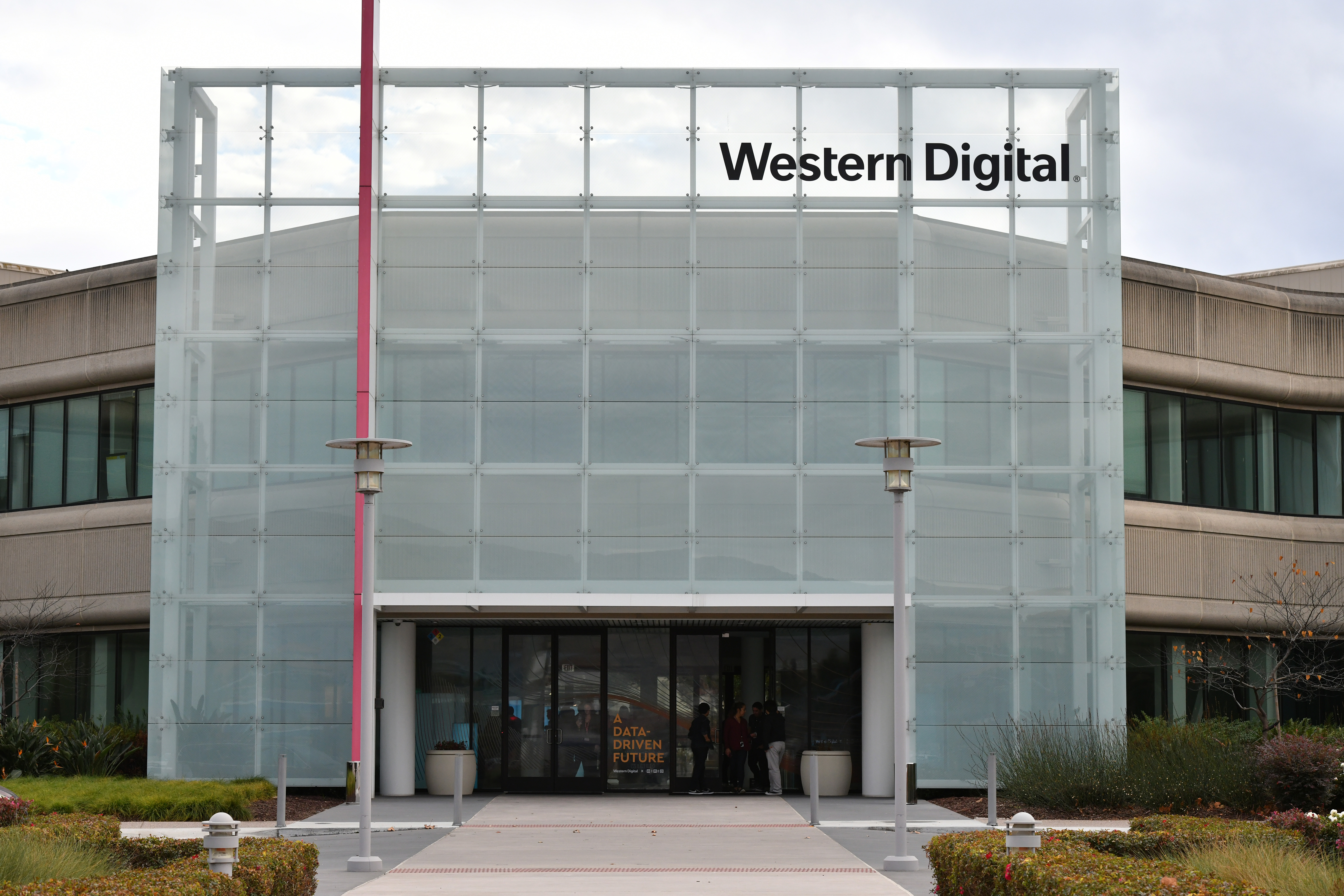WD launches investigation into problems with its controversial SMR hard drives — same drives that got WD sued in 2021 now reporting failure rates due to 'fundamental' flaws
SMR haters have years of wariness towards the hard drive tech vindicated.

Hard drive manufacturer Western Digital has confirmed that it is looking into potential problems with its older hard drives identified by data recovery scientists. The drives in question, a collection of 2TB to 6TB WD Blue and Red models released around 2020, are SMR drives, a classification that already brought WD a class-action lawsuit in 2021.
"Trust and reliability are the foundation of everything we do at Western Digital," reads WD's official response to German outlet Heise Online. "We take the results reported by 030 Datenrettung Berlin GmbH seriously and have initiated an investigation by our engineering teams to understand the scope and details of these reports."
As WD alludes to, multiple data recovery scientists, including 030 data recovery, have begun reporting the issues fundamental to WD's use of SMR technology in lower-capacity drives. An open secret since 2021, data scientists have known that these 2TB to 6TB WD Red and Blue SMR drives have increased chances of failure, up to permanent data loss and physical drive damage.
SMR (Shingled Magnetic Recording) drives have been an available technology for hard drive makers to increase capacity cheaply at the cost of performance for years. SMR drives "shingle" data written onto them, as the name suggests, by overlaying the write tracks of data on top of other data, like roof shingles.
While this results in up to 25% greater capacity per platter in smaller drive sizes, it also adds layers of complexity and failure, as rewriting write tracks shingled under neighboring data becomes a whole production. As a result, SMR in smaller consumer drives has anecdotally caused problems in ZFS, RAID, and other redundant file systems for years. For a longer lesson on SMR, see our explainer written here in our first article on WD's use of SMR in these very drives in 2020.
Now, data recovery scientists are confirming that Western Digital Blue and Red drives with the WD*0EZAZ, WD*0EDAZ, and WD*0EFAX model numbers at the 2TB, 3TB, 4TB, and 6TB sizes are prone to abnormally high failure rates. Data scientists like 030 Datenrettung, mentioned above, also previously included WD Purple drives released at the same time in their list of failing SMR drives, but WD confirmed that the Purple drives are built on a different enough firmware that the same issues would not affect these drives. Larger SMR drives are also not at risk of the same failures.
The EZAZ, EDAZ, and EFAX drive models have been trouble for WD many times before. When the drives were released in 2020, WD did not disclose to consumers that the drives utilize SMR technology, a serious omission. While the company issued an apology for its blunder, a class-action lawsuit launched in 2021 secured a $2.7 million compensation fund for hoodwinked WD customers, paying out $4-$7 per claimant.
Get Tom's Hardware's best news and in-depth reviews, straight to your inbox.
Now, these same problematic drives are also proving to be at risk of serious damage and data loss. Anyone using WD hard drives at these sizes from 2020 or later should check their hardware to ensure they are not also at risk of data loss and failure; data scientists suggest that the first sign of trouble with the drives will be loud noises coming from the spinning platters, though that warning sign is a fairly universal signal of something going terribly wrong.

Follow Tom's Hardware on Google News, or add us as a preferred source, to get our latest news, analysis, & reviews in your feeds.

Sunny Grimm is a contributing writer for Tom's Hardware. He has been building and breaking computers since 2017, serving as the resident youngster at Tom's. From APUs to RGB, Sunny has a handle on all the latest tech news.
-
King_V Replyas rewriting write tracks shingled under neighboring data becomes a whole production.
Who would have ever guessed that a drive having to do so much extra work for the simple task of writing data could ever have adverse effects?? -
AngelusF Reply
In fairness, SMR drives are only supposed to be used where the vast majority of the workload is reading rather than writing (like WORM), so I wonder how many companies have been writing more than they were supposed to. Still, I suppose the SMART stats would show that.King_V said:Who would have ever guessed that a drive having to do so much extra work for the simple task of writing data could ever have adverse effects?? -
remixedcat Reply
Thing is a bunch of these are RED drives which are marketed for NAS !! NAS drives are meant to be written to a lot and have higher performance than desktop drives but WD got cheap.AngelusF said:In fairness, SMR drives are only supposed to be used where the vast majority of the workload is reading rather than writing (like WORM), so I wonder how many companies have been writing more than they were supposed to. Still, I suppose the SMART stats would show that. -
JeffreyP55 Reply
I still have 3, 12 + year old working 2TB black HDD that still are humming along. What a shame WD is just awful now. Earlier this year, WD spun off its flash memory to Sandisk. To be honest, I have been using NVMe M.2 2280 dives for a few years now. My old 2014 Windows 10 build still uses one of three blacks. Maybe the black's are at least one of WD's best mechanical drive efforts.Admin said:Western Digital Blue and Red HDDs from 2020 that use SMR technology are experiencing enough failures to prompt an investigation from WD itself. These same drives, which included SMR without telling customers, resulted in a class action lawsuit against WD in 2021.
WD launches investigation into problems with its controversial SMR hard drives — same drives that got WD sued in 2021 now reporting failure rates d... : Read more -
shaester_123 Reply
You not the only one that thought the same thing . I stopped buying thier disk years ago , but I would never go above the 4TB model . Anything over about 6TB utilized this technology .King_V said:Who would have ever guessed that a drive having to do so much extra work for the simple task of writing data could ever have adverse effects?? -
shaester_123 I love when my hunch is correct . I stopped buying there drives years ago . I noticed they got hacked , then went the quality control ; then this was sure to blow up in they face .Reply